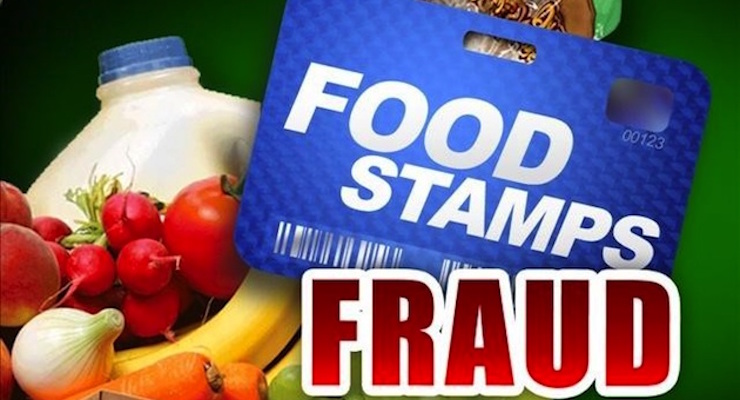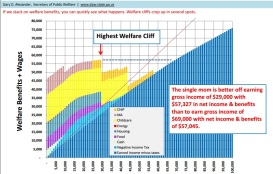

Certain redistribution programs are called “entitlements” because anybody who meets various criteria is “entitled” to automatically get money or other benefits.
Economists worry that such programs (particularly the “means-tested” entitlements) create perverse incentives since some people will choose to work less and earn less in order to maximize the amount of handouts they receive. 

And the problem presumably is worse in places where there is a greater amount of redistribution (if you’re curious, here’s the data on which states and countries have the most profligate package of benefits).
But the problem goes beyond simply luring people into idleness with bad incentives. When politicians create programs that give away money, they also create opportunities for outright fraud. Which is a pervasive problem, as illustrated by these examples.
Let’s travel to Minnesota to get a sense of the magnitude of the problem.
Minnesota’s Pioneer Press reports on a government audit that found one-third of welfare recipients improperly received handouts.
A review by Minnesota’s legislative auditor has found that some of Minnesota’s welfare programs do a poor job of ensuring benefits don’t go to ineligible people… It found significant error rates in the Temporary Assistance For Needy Families program, which provides cash and other benefits to low-income families with children. …the audit found eight of 24 families it reviewed weren’t eligible for benefits they received.
That’s not a large sample size, so we don’t know if the actual overall error rate is higher or lower than 33 percent, but the audit certainly suggests that there is a major problem.
It’s also not clear how much of the problem is caused by accident and how much is caused by fraud. Presumably the latter, but it’s quite possible that some people aren’t knowingly bilking the system.
But in some cases, there’s no ambiguity. The Sun has a horror story about a stunning case of welfare fraud.
Fozia Dualeh, 39, was charged with felony theft in Anoka County District Court, as prosecutors say she received $118,000 in government aid over roughly an 18 month period. According to the complaint, Dualeh exploited three public benefit programs from January 2015 to August 2015 which included $24,176 in food support, $85,582 in child care assistance and $8,996 in medical assistance overpayments.
Wow, almost $120K over 1-1/2 years. That’s an impressive haul, though perhaps not too surprising given the dozens of handout programs that – when combined – make idleness relatively lucrative.
In any event, Ms. Dualeh claimed she was eligible for that huge package of handouts because her husband was no longer part of the family.
But that wasn’t true.
A search of the home by authorities in late October 2015 led to the discovery of Dualeh’s husband, who is also the children’s father, Abdikhadar Ismail, hiding under a blanket in the master bedroom, charges said. Several articles of mens clothing were found in a chest, as well as numerous documents and mail throughout the home belonging to Ismail. Ismail also listed the family’s address on two vehicles and with his employer, a residential health care business.
Given the large sums of money involved, the Center of the American Experiment probably deserves an award for most-understated headline on this issue.
Though at the risk of being a pedantic libertarian, I would prefer if the headline said “Lucrative” instead of “Profitable.” After all, as Walter Williams has explained that profit is a meritorious reward for serving others.
But we can all probably agree that Ms. Dualeh deserves membership in the Moocher Hall of Fame.
The most damning journalistic sin committed by the media during the era of Russia collusion…
The first ecological study finds mask mandates were not effective at slowing the spread of…
On "What Are the Odds?" Monday, Robert Barnes and Rich Baris note how big tech…
On "What Are the Odds?" Monday, Robert Barnes and Rich Baris discuss why America First…
Personal income fell $1,516.6 billion (7.1%) in February, roughly the consensus forecast, while consumer spending…
Research finds those previously infected by or vaccinated against SARS-CoV-2 are not at risk of…
This website uses cookies.